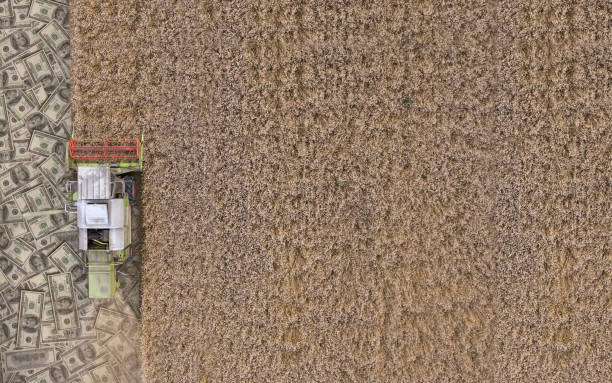In the past two years or so, as discussed in the first article of this series, the issue of restricting foreign investments and ownership in privately held farmland emerged or reemerged in the majority of states. This reemerging interest in restricting foreign investments in U.S. land, especially agricultural land, is partly due to a Chinese-owned company purchasing over 130,000 acres near a U.S. Air Force base in Texas. Another transaction that raised concerns among some lawmakers is the purchase of 300 acres near an Air Force base in North Dakota by the Chinese company Fufeng Group.
Each of these states have proposed legislation that would restrict foreign ownership or investments in real property or agricultural land to some degree. Like the states that currently have laws, many of these states have introduced bills that take its own approach to restricting foreign ownership and investments in agricultural land within their states. In 2023, approximately twelve states—Alabama, Arkansas, Florida, Idaho, Louisiana, Montana, North Dakota, Ohio, Oklahoma, Tennessee, Utah, and Virginia—have enacted or amended a law restricting certain foreign investments in land located within their state.
This article is the eighth in a series that discusses recent state proposals that seek to restrict foreign ownership of land. This article discusses the proposals introduced in North Carolina and North Dakota. To read the other articles in this series, click here.
North Carolina
The North Carolina state legislature is currently considering House Bill 463 (“HB 463”) which seeks to restrict certain foreign investors from acquiring land within the state. Currently, state law permits “aliens to take…any lands…and to hold and convey the same as fully as citizens of this State.” N.C. Gen. Stat. Ann. § 64-1. Thus, North Carolina permits some level of foreign investment in land located within their state. However, HB 463 would prevent certain foreign governments from acquiring certain North Carolina real property.
Specifically, HB 463 would prevent a “adversarial foreign government” (“AFG”) from acquiring, leasing, or holding any interest in agricultural land located within the state. The measure also restricts AFGs from acquiring land within a 25-mile radius of a military installation. Under the proposal, an AFG is a government or “state-controlled enterprise” (i.e., a business entity in which a government holds more than 50% of the ownership interest in the entity) of a country that is classified as a “foreign adversary” by the U.S. Secretary of Commerce. The current list of foreign adversaries includes China, Cuba, Iran, North Korea, Russia, and Venezuela’s Maduro Regime. See 15 C.F.R. § 7.4(a).
Under the bill, non-AFG individuals and entities have no obligation to determine whether a purchaser or investor of agricultural land is an AFG. Rather, HB 463 places this responsibility on the AFG and the state of North Carolina. Further, non-AFG persons are not civilly or criminally liable for failing to inquire or identify whether an investor is an AFG while selling, leasing, or transferring agricultural land. Transactions that violate the restriction prescribed under HB 463 are deemed void.
On April 26, the North Carolina House unanimously passed HB 463 and is currently being considered by the Committee on Rules and Operations of the Senate.
North Dakota
North Dakota is one state to enact legislation that restricts certain foreign investments in agricultural land during the 2023 legislative session. The state legislature considered four proposals seeking to restrict foreign investments in land located within the state in 2023 (HB 1135, HB 1356, HB 1503, and SB 2371), two of which the legislature enacted.
One measure enacted by the North Dakota state legislature in 2023 is House Bill 1135 (“HB 1135”), which amended the state’s foreign ownership law. Before enacting HB 1135, North Dakota state law only restricted nonresident foreign individuals and foreign business entities from acquiring an interest in agricultural land within the state. HB 1135 extends the restriction to foreign governments and “state-controlled enterprises.” A state-controlled enterprise is an entity in which a government (1) holds 51% or more of the ownership interest in the entity, or (2) holds less than 51% but the foreign government directs the business operations of the entity.
Unlike many states that enacted a foreign ownership law in 2023, HB 1135 does not limit the restriction to foreign governments of certain countries. Rather, the restriction applies to all foreign governments and government-controlled entities. However, the law permits state-controlled enterprises to acquire up to 160 acres of agricultural land so long as the land is used for agricultural research and development, or experimental purposes.
In 2023, the North Dakota state legislature also enacted Senate Bill 2371 (“SB 2371”). This law prohibits governments and business entities of a country designated as a “foreign adversary” by the U.S. Secretary of Commerce (see 15 C.F.R. § 7.4) from acquiring title to any real property located within the state. However, this restriction does not apply to entities that: (1) is a registered business and remained in good standing for at least seven years; (2) has been approved by the Committee on Foreign Investment in the U.S. (“CFIUS”); and (3) has an active national security agreement with the U.S. federal government.
Conclusion
In 2023, the issue of restricting foreign ownership and investments in farmland emerged or reemerged in the majority of states. So far, approximately twelve states have enacted a foreign ownership law during the 2023 legislative session. Additionally, the federal government is also considering issue of restricting foreign investments and acquisitions of U.S. land. Currently, Congress is considering several proposals that seek to restrict or regulate certain foreign investments in U.S. land.
To read the other articles in this series, click here.
For compilation of state laws governing foreign ownership of agricultural land, click here.
To learn more about foreign ownership of agricultural land, click here.
To view NALC resources concerning foreign ownership of ag land, click here.
Subscribe to NALC’s bi-weekly newsletter The Feed for recent legal developments affecting agriculture, including foreign ownership of agricultural land here.
For previous issues of The Feed, click here.
